Education: Summer Camps
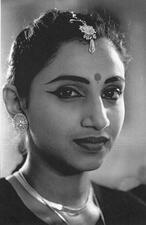
Baghdadi Jewish Women in India
Lizzie Spiegel Barbe
Lizzie Spiegel Barbe, a member of a prominent Chicago family, devoted more than fifty years of her life to being a clubwoman and leader within the Chicago Jewish community. Like other “Jewish Clubwomen” of this era, Barbe was motivated to establish leadership roles for women that had previous not existed within the organized Jewish community.

Libbie Suchoff Berkson
Libbie Suchoff Berkson was beloved by generations of campers as Aunt Libbie, director of Camp Modin for girls. She helped to establish the Jewish summer camp and ran it for decades, even while living in Israel and working on several other projects, such as a kindergarten and a teahouse.
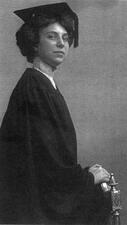
Jeanette Goodman Brill
Shulamith Reich Elster

Sylvia Ettenberg

Rose Gruening
Rose Gruening created a number of social assistance organizations to aid immigrant families, offering practical help that included childcare, funding for college educations, and even a summer camp.
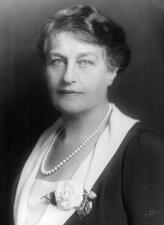
Hebrew Teachers Colleges in the United States
Jewish education in the United States was always the preserve of women on the “front lines” and in the classroom. In the early days of these programs, men “ran the show,” but beginning in the mid-twenteith century, women began to take on increasing roles as faculty members and administrators. In the early twenty-first century, women ascended to leadership positions in these institutions.
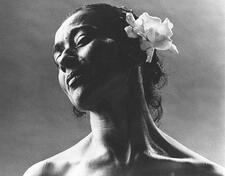
Israeli Folk Dance Pioneers in North America
Dance has been an integral element of the Jewish community since biblical times. An intense desire to share the joy of dance, coupled with a strong identification with both Israel and their Jewish roots, spurred a group of influential women to create a flourishing movement of Israeli folk dance in North America. Today, Israeli folk dance enjoys a wider popularity than ever.
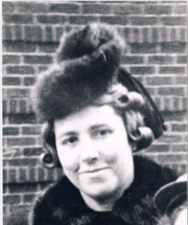
Irma Rothschild Jung
Irma Rothschild Jung, a native of Randegg, Baden, Germany, was born on July 1, 1897, and until her death close to a century later, dedicated her substantial energies to pioneering Jewish communal programs in aid of the needy. Her leadership and influence were deeply felt in the broader Jewish community by the countless individuals, young and old, who benefited from her generous spirit.
Esther Loeb Kohn
Esther Loeb Kohn helped bridge the gap between Chicago’s volunteer and professional social workers and spent thirty years running the Hull House settlement whenever founder Jane Addams was away on her frequent travels.
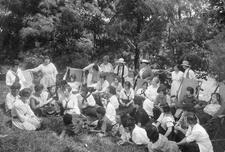
Leisure and Recreation in the United States
Blanche Cohen Nirenstein
Descending from a family active in Jewish communal life, Blanche Cohen Nirenstein further developed her leadership abilities in a wide range of social science activities. Nirenstein found a myriad of ways to help Jewish widows and needy children, from founding a kosher summer camp to supporting Holocaust survivors.
![Swiss identity card of translator, journalist, and author Juliette Pary (pen name of Juliette [Gourfinkel] Pougatch), 1944.](/sites/default/files/styles/gallery_item/public/mediaobjects/ch-bar_e4264_1985-196_10835_5_1.jpg?itok=7ZMC46d1)
Juliette Pary
Born in Odessa, Juliette Pary moved to Paris in 1925 and became a respected translator, journalist, and author. She also played important roles in summer camps, youth hostels, and the development of modern educational practices. During World War II she worked closely with child refugees.
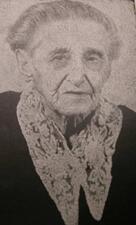
Puah Rakovsky
Puah Rakovsky dedicated her life to working towards the empowerment of Jews, particularly of Jewish women. She was a revolutionary woman, taking on important roles as an educator, translator, organizer of women, and an early socialist Zionist.
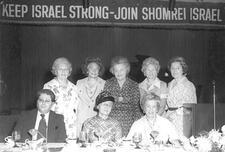
Religious Zionist Movements in Palestine
Religious Zionism, distinguished from the secular Zionists by its religious nature and from the ultra-Orthodox community by its Zionism, consisted of two major movements in the Yishuv: the Mizrachi and the Ha-Po’el ha-Mizrachi, a trade union. Women created their own organizations within these movements but distinguished themselves from the men through their support of women and their interests.
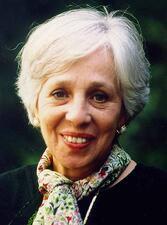
Maxine Singer
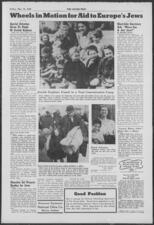
Celia Strakosch
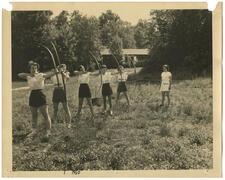
Summer Camping in the United States
The Jewish summer camp movement shaped ethnic-American identity and Jewish childhood throughout the twentieth and into the twenty-first century. A means to fight anti-Semitism by showcasing patriotism and developing the camper’s physical fitness, it was also a safe space to explore, question and craft religious traditions and rituals, novel ideas about girlhood, and the possibilities of womanhood.


